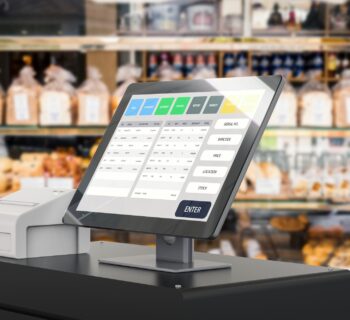In an age that operates at the speed of the internet, where e-commerce is king and customer expectations are off the charts, inventory management has transcended its traditional role to become a make-or-break factor for businesses, big and small. The art and science of tracking goods through different stages of the production and distribution cycle is now underpinned by a suite of technological innovations.
For small business owners, warehouse managers, and retailers, a robust Inventory Management System (IMS) can boost productivity and stay competitive. Here’s how they do it:
The Essence of Efficient Inventory Management
The cartilage of commerce, inventory management, lies at the heart of any successful operation. Efficient inventory management is not a luxury but a necessity, especially in businesses that are handling physical goods.
In this digital age, manual inventory tracking methodologies are akin to shackling your potential. Inventory management system is the gateway to unlock productivity by ensuring that what you have is where you need it when you need it. The message is clear: Streamlined inventory processes are the key to competitiveness and growth.
Key Challenges: Missteps in Inventory Management
Before we lay out how IMS can catalyse productivity, it’s crucial to recognise the minefield. Common inventory management challenges include overstocking, leading to waste and reduced cash flow, and stockouts, which can result in lost sales and unhappy customers.
Manual tracking systems are not only time-consuming but also tend to be riddled with errors, leading to discrepancies between recorded and actual inventory levels. These challenges can have a domino effect, impacting everything from customer satisfaction to vendor relations.
How Inventory Management Systems (IMS) Help
The digital elixir of inventory management system delivers a suite of solutions that can be the driving force in transforming your operation from chaos to harmony.
- Automating Inventory Tracking
IMS ushers in the era of real-time tracking, where inventory levels are updated instantly with each transaction. Say goodbye to manual entry mistakes and hello to the peace of mind that comes with knowing your inventory levels are accurate. This automation not only saves time but also reduces the costs associated with human error, such as miscounts and misplaced items.
- Demand Forecasting
One of the most potent capabilities of IMS is its ability to analyse data trends and predict demand. By knowing when certain products are likely to be needed, businesses can anticipate inventory needs and ensure they have the right amount of stock available. This foresight is invaluable, preventing understock situations that can lead to missed sales opportunities and overstock that ties up valuable resources.
- Streamlined Operations
An integrated IMS can revolutionise how you orchestrate your operations. From purchase orders to sales, it can automate manual processes, shaving off valuable minutes and reducing the potential for missteps. Additionally, by providing real-time data on inventory levels across multiple locations, IMS can optimise logistics and ensure that goods are moved from warehouse to customer with the utmost efficiency.
Choosing the Right IMS
Selecting the right IMS is like choosing the right tool for a job. It should fit your business’s unique needs and be a partner on the path to productivity. Factors to consider when selecting an IMS system include cost, ease of use, scalability, and the ability to integrate with your existing systems. Discussing the pros and cons of different IMS options with vendors and other users can provide valuable insights into what will work best for you.
Implementation Best Practices
Adopting an IMS is not just about the technology. It’s about the people who will use it. Effective training and change management processes are essential to ensure a smooth transition.
Businesses should also prepare for the transition by cleaning up their existing data and setting up the IMS system with the correct information to avoid confusion and inaccuracies in the early stages of use.
The Future of Inventory Management
The road ahead promises more exciting developments in IMS technology. We can expect to see even greater integration between IMS and other business systems, such as customer relationship management (CRM) and enterprise resource planning (ERP) software. This evolution will lead to even more comprehensive insights and the ability to adapt to market changes with lightning speed.
Conclusion
The power of efficient inventory management systems cannot be overstated. They offer the promise of enhanced productivity through accurate tracking, insightful forecasting, and streamlined operations.
Businesses that understand this and take steps to adopt or upgrade their IMS are setting themselves up for long-term success and growth in an increasingly competitive market. It’s time to take stock, quite literally, and make the move toward an inventory system that can be the backbone of your enterprise’s future productivity.








